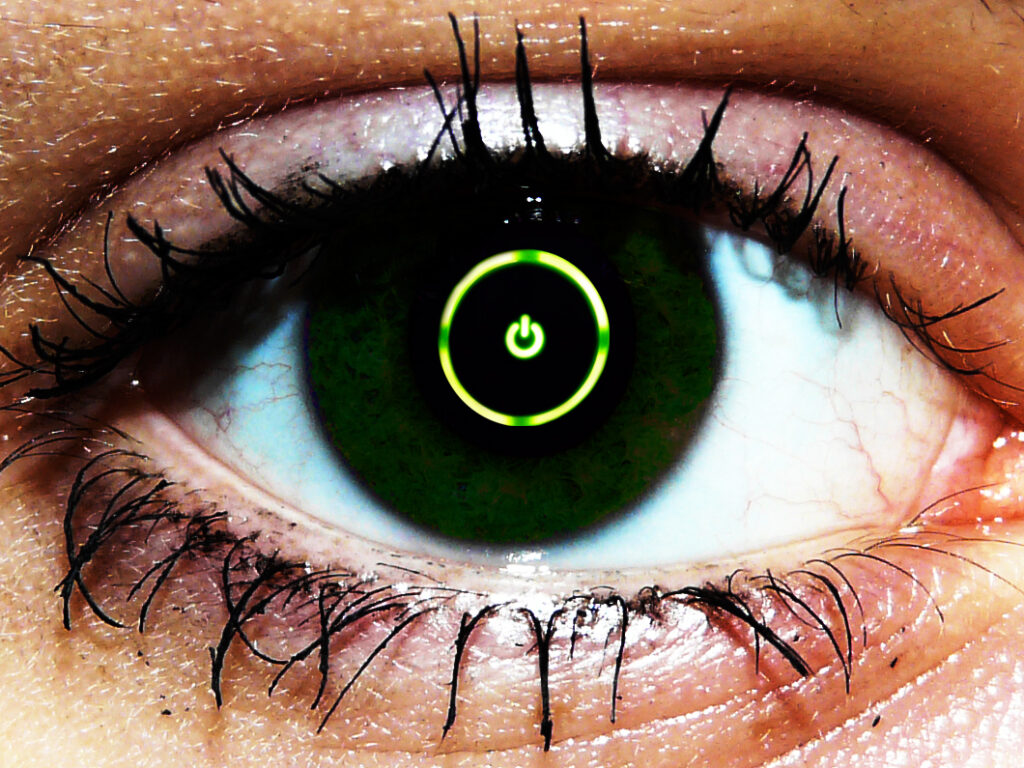Eye watering statistics from a recent survey reveal that a large number of British employers are failing to comply with laws obliging them to care for the eyesight of their computer using employees. Here we present a definitive guide to what you need to provide to employees and what their rights in this area are.
Employers with staff who use computer screens are obliged by the Health and Safety (Display Screen Equipment) Regulations 1993 to provide those workers with regular eye tests on request. However, a research study, commissioned by Simplyhealth in conjunction with the Eyecare Trust of HR professionals has found that one in five big businesses (of 1,000 plus employees) fail to pay for regular sight tests and only a third of small employers (less than 10 employees) cover the cost.
Employers must pay for special spectacles where these are required for DSE use only, yet 40% of employers surveyed say they would refuse to make a contribution towards ‘DSE spectacles’.
Despite the law coming into effect in 1993, one in ten employers has no eye care policy at all. It appears that 17 years on there is still misunderstanding about what the Regulations actually mean for employers. Although caring for employees’ eyes may not be the top priority in this tough economic climate, Sarah Embleton of Burges Salmon LLP explains that knowing what employees are entitled to could put employers ahead of the game.
What are employers obliged to do?
• Provide eye tests (at no cost to the employee) for employees who are habitual users of DSE on request by the employee.
• Provide eye tests for new recruits who will be DSE users and employees transferring into positions where they will be users, again on request by the recruit/employee.
• Provide the eye test as soon as possible after the request is made, or for new recruits or employees about to become users, before they become users.
• Provide tests at regular intervals after the first test- provided the user wants the test.
• Cover the full cost of a basic frame and lenses if the user is prescribed special spectacles for DSE use only.
• Give staff adequate information about their entitlement to eye tests and how the employer provides tests.
What does this mean in practice?
• The obligation is to provide eye tests for staff that habitually use DSE as a significant part of their normal work (generally for more than an hour at a time). People who use DSE occasionally are not covered.
• Employers have no responsibility to offer tests to employees, only to provide tests on request.
• After the first eye test, follow up tests must be provided. However, these do not necessarily have to be yearly. Employers should be guided by the advice of the examining optician who will often recommend testing bi-annually.
• Employers need to pay for spectacles where they are required for DSE use only. Liability for the cost of spectacles extends to a basic frame and the prescribed lenses adequate for the user’s work – costs associated with any fashion element should be met by the employee.
• Only a minority of employees will require spectacles solely for DSE use (generally less than 10%). There is no responsibility to pay for normal spectacles: these are at the employee’s expense.
• Employers are only obliged to provide a test, rather than pay for one. Businesses can make their own arrangements for tests which comply with the law but also ensure cost and administration is kept to a minimum.
Employers could be forgiven for thinking this is yet another unwanted expense at a time when businesses are looking to cut costs rather than increase them. However, employers would be advised to check their eye care policy is in line with the law, as the old adage prevention is better than cure is often true.
With an estimated £1.5bn a year being incurred by British businesses through absenteeism and reduced productivity due to screen related eyestrain, a well thought out policy could cut administration time and expense as well as saving money. If employers do not have an eye care policy in place at all, there is a risk that the business will be exposed to claims for reimbursement from employees for tests and spectacles purchased at opticians of their own choosing. In some opticians, even the most basic frames have a high-end cost attached.
Top tips for smart sighted employers
• An eye care policy doesn’t need to be complicated. A simple form for reimbursement in line with your policy for claiming expenses may do. However, providing clear guidance to employees on the extent of their entitlement will help to manage their expectations and avoid misunderstandings.
• In large businesses, consider whether corporate eye care arrangements would be beneficial, for example a preferred provider. Alternatively, you could consider providing vouchers to cover the costs of eye tests with certain opticians.
• Smaller employers may benefit from asking employees to communicate the cost of eye tests and/or spectacles in advance of incurring the costs.
• Make it clear to employees who are entitled to request an eye test. If not all employees use DSE, consider whether you want to limit the policy to those who do.
• If you allow employees to make their own arrangements for tests, set out clearly what evidence you will require before reimbursing them. There is no need to pay out without receipts and/or evidence of a DSE prescription.
• Where employees are likely to request repeat tests, ask to see a copy of the optician’s recommendation for the advised frequency of testing. Keep a record of when employees had tests, but be aware of data protection issues involved in processing and storing personal data.






One Response
How much?
I’d be interested to know how the estimated £1.5bn a year being incurred by British businesses through absenteeism and reduced productivity due to screen related eyestrain is made up, literally.